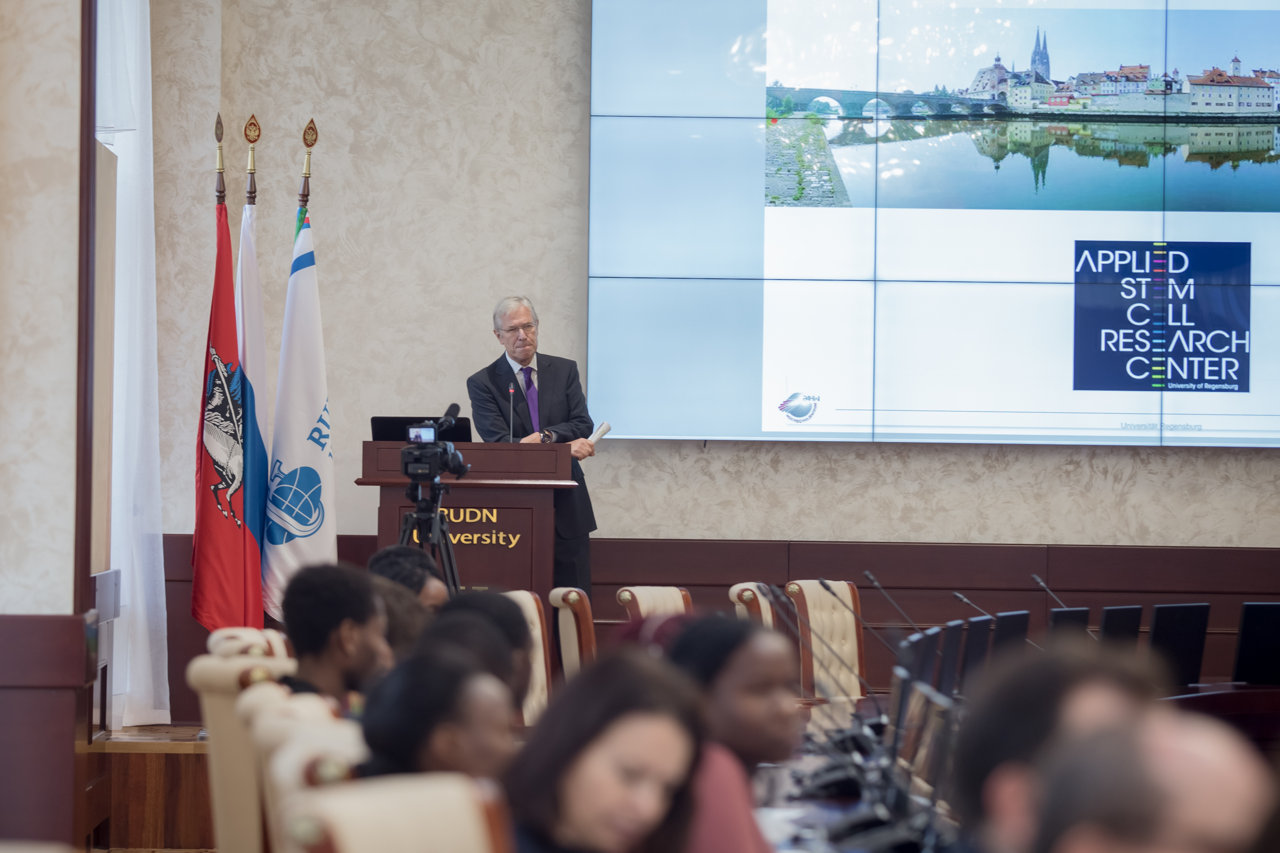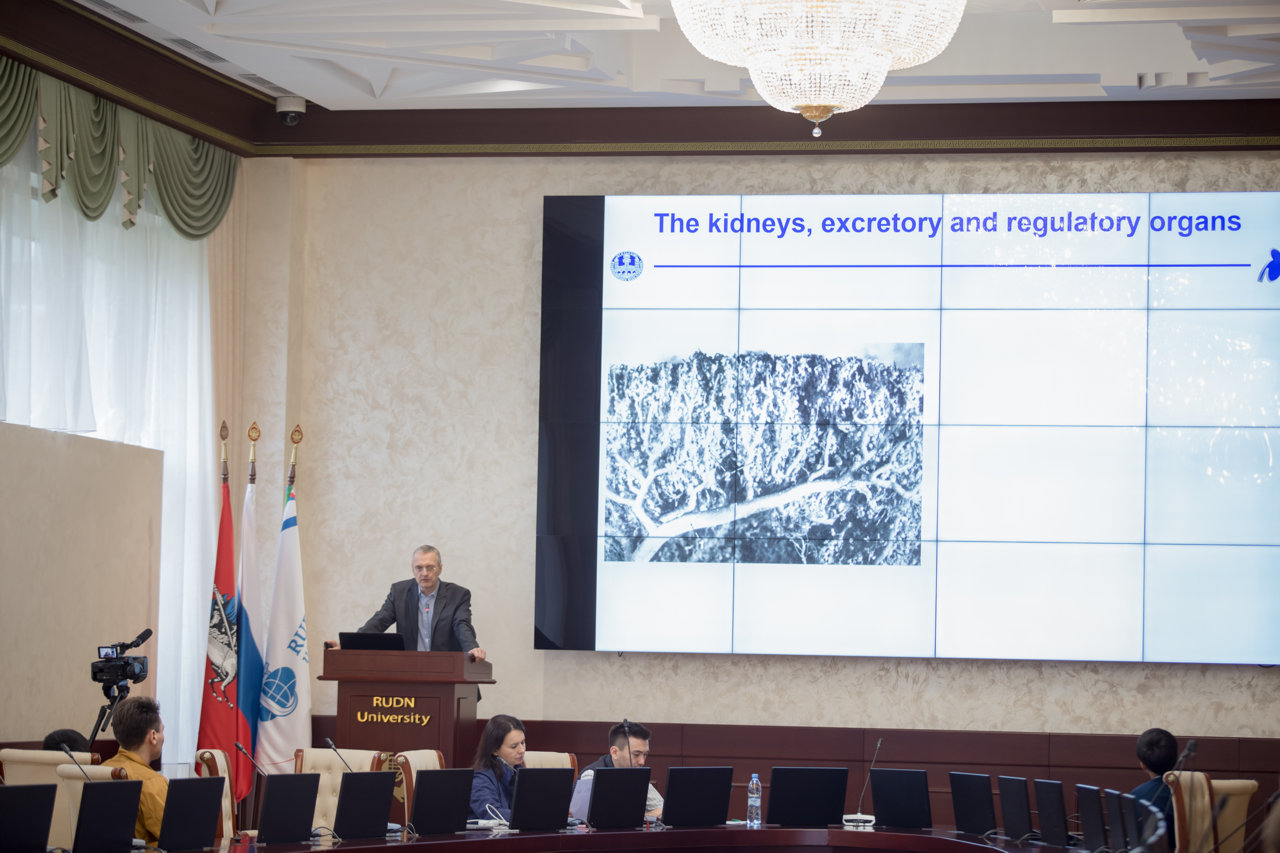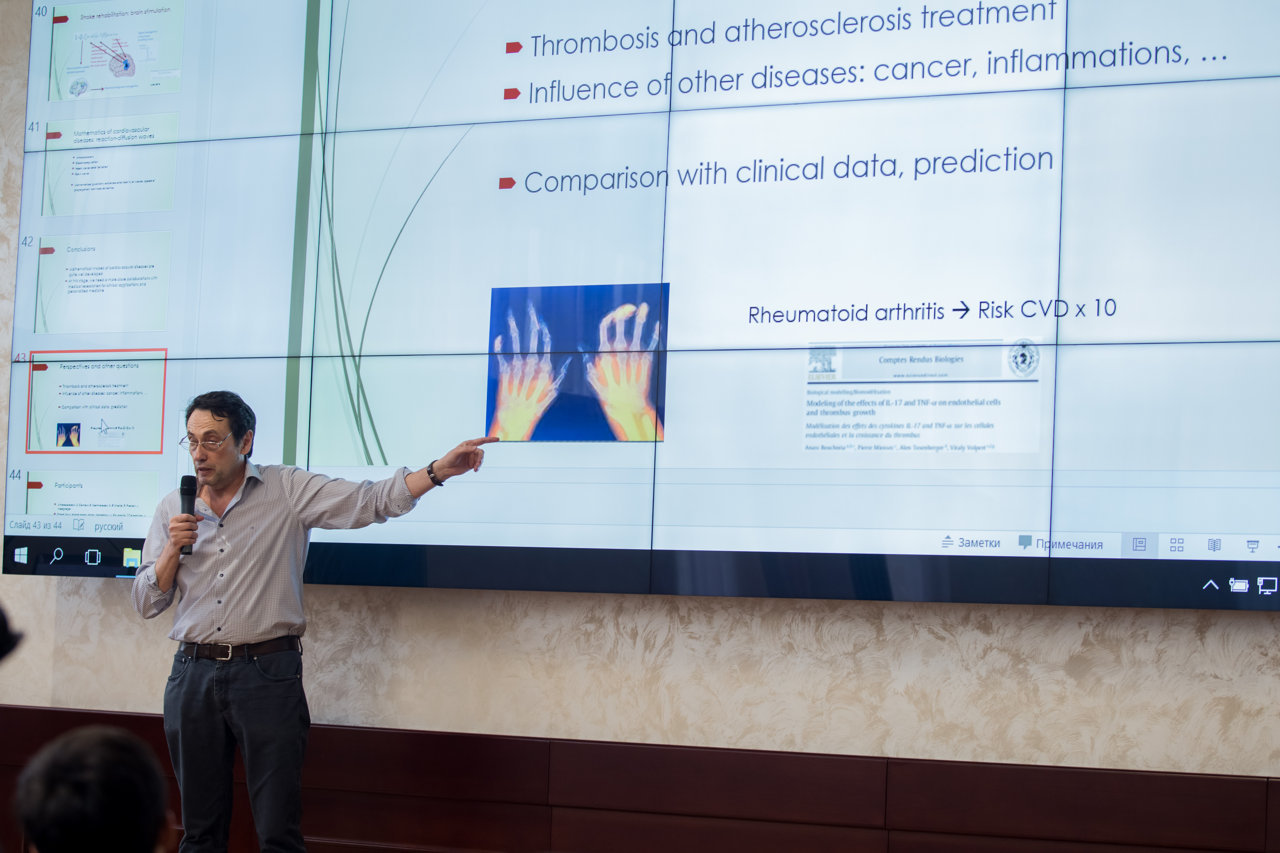"Mathematics gives medicine powerful tools. The union of two sciences gives a new direction - Life Sciences”, Wolf-Ferdinand Wieland, professor at the University of Regensburg (Universität Regensburg, Germany)
Mathematical modeling in medicine gives a deep analysis of normal and pathological processes in the human body. In RUDN, experts of both sciences proposed common areas of work: mathematical modeling, simulation and data analysis are useful for studying cardiovascular diseases, renal dysfunction, cell biology, immunology, allergology, cardiology, clinical pharmacology, oncology and radiology.
"Mathematics provides powerful tools for developing life sciences and creating new solutions for diagnosis and treatment. Calculations in the study of stem cells already help with arthritis, to restore sensitivity after trauma and burns”, Professor Wolf Wieland of the University of Regensburg (Germany) shared the results of clinical trials. "In Russia there is strong mathematics and extensive experience in using it for medical purposes," the expert said.
Due to the limited possibilities of experimental research, a detailed study of the processes in the biomedia becomes especially important. This will not treat the symptoms and illnesses after their appearance, but systematically prevent their appearance.
"To understand the interrelated processes occurring in the human body, certain areas of medicine are not enough. The time has come for a new direction in life science, which unites medicine, mathematics and IT tools. The unification of efforts will open up the possibilities of personalized medicine, the pinpoint effect of drugs, and will also solve non-systemic problems - the causes of mutation and arrhythmia, "Professor Willi Jager of the University of Heidelberg (Germany). Special attention was paid to the mathematical approach to solving problems associated with sepsis.
The themes of RUDN round table covered questions of mathematical approaches in immunology, cardiology, oncology, urology and pharmacology. Famous scientists - mathematicians and physicians: Gennady Bocharov, Valentin Pavlov, Ralph Witzgall, Vitaliy Volpert, Revaz Sepiashvili, Zhanna Kobalava, Andrey Kostin and Pavel Ogurtsov took part in the round table.
Products derived from microalgae represent a cutting-edge development in the field of bioeconomy. The potential of this biological resource was discussed at the international research seminar “Foundations for a Green Sustainable Energy”, part of the BRICS Network University’s thematic group on “Energy”. The event was organized by the Institute of Ecology at RUDN University.
Ambassadors of Russian education and science met at a conference in RUDN University to discuss how they can increase the visibility of Russian universities and research organizations in the world, and attract more international students in Russia.
The international scientific seminar hosted by RUDN Institute of Ecology “Experience of participation in student organizations as a way to form career skills” united scholarship recipients of the International Student Mobility Awards 2024 and Open Doors, along with members of the scientific student society “GreenLab” and the professional student association “Kostyor (Bonfire)” shared their projects focused on environmental protection.


